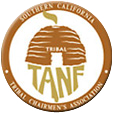WASHINGTON – Today in Anchorage, Alaska, U.S. Department of Housing and Urban Development Secretary Julián Castro announced $60 million in funding to more than 90 tribal communities throughout the nation to improve housing conditions and stimulate community development, including construction projects and local jobs for low-income families. Provided through HUD’s Indian Community Development Block Grant (ICDBG) Program, these funds support a wide variety of community development and affordable housing activities.
“These grants will create better housing, spur economic development and support self-determination in Native American communities,” said HUD Secretary Julián Castro. “ICDBG funds are an important investment in the remote and low-income tribal communities that need it most. Through this work, we’re proud to help our tribal partners expand opportunity in their community by determining on their own, not from Washington, which local projects meet their needs and strengthen their future.”
The purpose of the ICDBG program is to develop viable Indian and Alaska Native communities, including decent housing, suitable living environments, and economic opportunities. Recipients can use the funding to support rehabbing or building new housing or to buy land for housing; for infrastructure such as roads, water and sewer facilities; and to spur economic development including job creation.
This year’s projects include building an education center by the Hopland Band of Pomo Indians in California to provide preschool, child care, afterschool programs and education for adults. In Michigan, the Hannahville Indian Community will extend a natural gas line to provide affordable fuel costs to heat the homes of 49 low-income families. In Idaho, the Nez Perce Housing Authority will complete housing rehab to include handicapped accessible units for low-income senior citizens. Read summaries of all the winners.
For the first time in fiscal year 2014, the awards will also be used through a special program to remediate and prevent mold in housing units owned or operated by tribes and tribally designated housing entities. Nine tribes will receive funding for mold remediation, including the Havasupai Tribe in Arizona, where the village is located at the bottom of the Grand Canyon and mold is common due in part to frequent flooding.
The ICDBG program was established in 1977 to help Indian tribes and Alaska Native villages to meet their community development needs. Federally recognized Indian tribes, bands, groups or nations (including Alaska Indian, Aleuts and Eskimos,) Alaska Native villages, and eligible tribal organizations compete for this funding.
HUD administers six programs that are specifically targeted to American Indian, Alaska Native, or native Hawaiian individuals and families, and federally recognized tribal governments. In Fiscal Year 2014, HUD received more than $736 million to fund programs to support housing and development initiatives in American Indian, Alaska Native, and native Hawaiian communities. Through innovative programming, American Indian and Alaska Native tribal governments have created sustainable and community-driven solutions to their housing and community development challenges.
##
HUD's mission is to create strong, sustainable, inclusive communities and quality affordable homes for all. HUD is working to strengthen the housing market to bolster the economy and protect consumers; meet the need for quality affordable rental homes: utilize housing as a platform for improving quality of life; build inclusive and sustainable communities free from discrimination; and transform the way HUD does business. More information about HUD and its programs is available on the Internet at www.hud.gov and http://espanol.hud.gov. You can also follow HUD on twitter @HUDgov, on facebook at www.facebook.com/HUD, or sign up for news alerts on HUD's email list.






